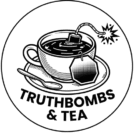Why Emotional Intelligence Matters (Like, Really Matters)
Let’s cut to the chase—emotional intelligence isn’t just some fluffy concept cooked up by HR departments. It’s the secret weapon separating those who thrive from those who merely survive in today’s relationship jungle, both personally and professionally.
Leaders with high emotional intelligence don’t just manage teams; they inspire them. They can read a room faster than you can say “toxic workplace culture” and adjust their approach accordingly. Picture this: while emotionally-challenged managers are wondering why productivity is tanking, the emotionally intelligent leader has already spotted the burnout, addressed the underlying issues, and gotten everyone back on track—without a single motivational poster in sight.
When it comes to conflicts, emotionally intelligent people are like relationship ninjas. Instead of awkwardly avoiding Susan from accounting after that heated budget meeting, they dive into the emotional undercurrents, transform tension into productive dialogue, and emerge with stronger connections. Meanwhile, everyone else is still sending passive-aggressive emails and pretending everything’s fine.
Here’s the kicker—research shows people with high emotional intelligence enjoy better mental health too. Turns out, understanding your feelings instead of shoving them down with a third cup of coffee actually makes you happier. Who would’ve thought?
Bottom line: in a world where technical skills get you through the door, emotional intelligence is what stops people from wanting to push you back out of it. Ignore developing your EI at your own peril.

Level Up Your Emotional Intelligence (No Magic Required)
Enhancing your emotional intelligence isn’t rocket science, but it does demand more effort than binge-watching self-help videos on YouTube. Here’s how to actually make progress:
First, embrace mindfulness like it’s your new best friend. Meditation isn’t just for yoga enthusiasts with perfect Instagram feeds—it’s a powerful tool for anyone who’s tired of their emotions hijacking their behavior. Take five minutes daily to focus on your breathing. Notice your thoughts without judgment (yes, even that one about strangling your printer when it jams). This practice helps you recognize emotional triggers before they trigger an email you’ll regret sending.
Next, start journaling like your emotional well-being depends on it—because it does. Don’t worry, you’re not writing the next great novel; you’re documenting your emotional landscape. When that client call makes your blood boil, write it down. When praise from your boss gives you an unexpected confidence boost, jot it down. Soon enough, you’ll spot patterns clearer than your Netflix recommendations algorithm ever could.
Master active listening—and no, scrolling through your phone while occasionally nodding isn’t active listening. It means being fully present, asking questions that don’t just set you up for your next brilliant point, and summarizing what you’ve heard to prove you were actually paying attention. Your relationships will transform when people realize you’re actually listening, not just waiting for your turn to talk.
Finally, consider investing in emotional intelligence training programs. Think of them as boot camps for your emotional muscles—structured, guided, and more effective than trying to piece together strategies from random TikTok videos.
Remember: developing emotional intelligence is a marathon, not a sprint. Incorporate these practices into your daily routine, and watch as your personal and professional relationships transform from “meh” to “magnificent.”

Your Emotional Intelligence Arsenal: Resources That Actually Work
Ready to supercharge your emotional intelligence journey? Skip the fluff and go straight for these heavy hitters:
Daniel Goleman’s “Emotional Intelligence: Why It Can Matter More Than IQ” isn’t just a bestseller; it’s the EI bible. Goleman breaks down the five pillars of emotional intelligence—self-awareness, self-regulation, motivation, empathy, and social skills—with the precision of someone who knows you’ll try to skip the hard parts. Through research and stories that don’t put you to sleep, he gives you a roadmap to becoming the emotionally savvy person everyone wants at their dinner party (or crisis management meeting).
For the workplace warriors, “The Emotionally Intelligent Manager” by Caruso and Salovey is your tactical guide. Think of it as “EI for Dummies Who Want to Be Brilliant Leaders.” This book teaches you to leverage emotional intelligence where it counts most—in decision-making, building teams that don’t secretly hate each other, and creating workplaces people actually want to be part of. It’s perfect for anyone who’s realized that technical expertise alone won’t save you from workplace drama.
If books aren’t your thing (no judgment), the Six Seconds Emotional Intelligence Certification program offers hands-on training that turns theory into practice. This isn’t just another certificate to gather dust on your wall—it’s a comprehensive program that forces you to apply EI concepts in real time. Expect to leave with skills that make a difference, not just buzzwords for your LinkedIn profile.
Another standout is “The Institute for Social and Emotional Intelligence” program, which breaks down complex EI concepts into actionable strategies. Their workshops build empathy, resilience, and people skills with the efficiency of someone who knows you’ve got better things to do than sit through vague platitudes about “being more aware.”
Dive into any of these resources, and you’ll be navigating emotional landscapes with the confidence of someone who finally downloaded the right map app. Your future self—and everyone who has to deal with you—will thank you.



